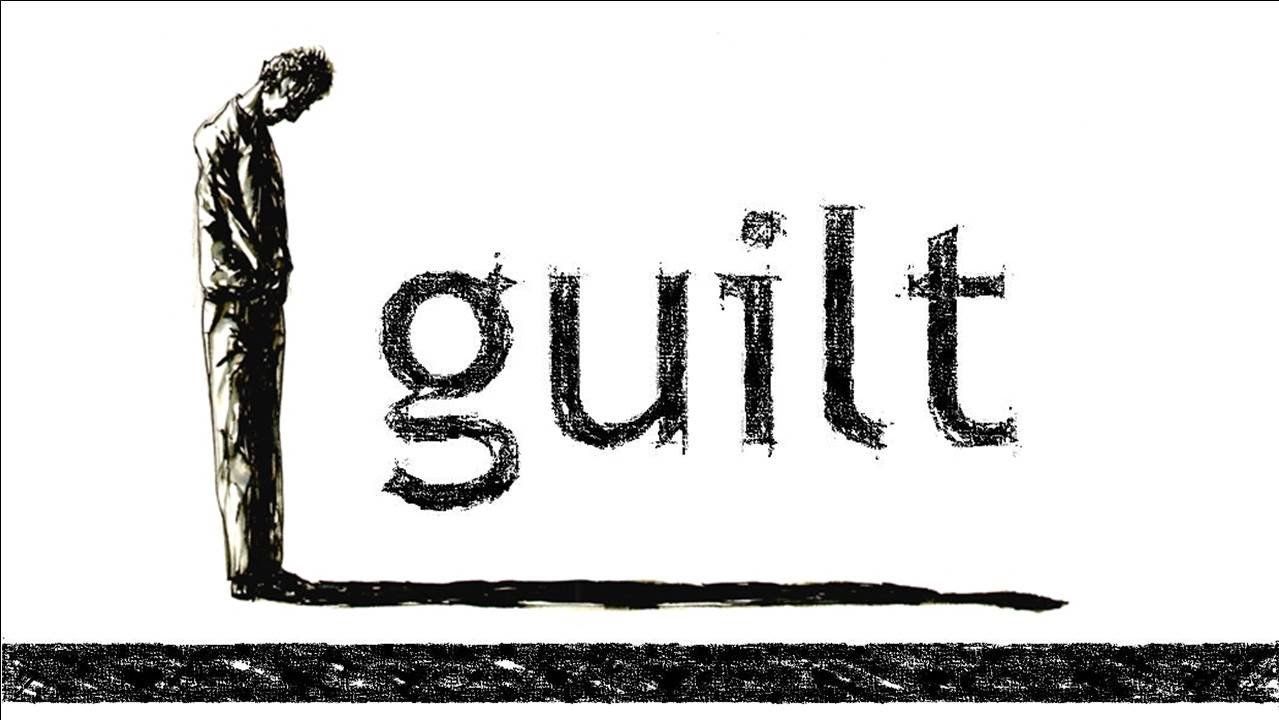Learn
Proven ideas and methods enabling you to master the art of care.
Articles On Depression

It was a single car accident. No one knows for sure what happened except for the catastrophic results. Here is what her father wrote on the thirteenth anniversary her death. "I've heard it said, 'Megan will be forever young.' Maybe I'm selfish, but that's not what I want. I wanted to see you graduate high school. I wanted to hear your excited chatter about your first year in college. I wanted to have more science debates with you. I wanted to cross swords with you in more snarky battles of the wits. I wanted to attend your college graduation. I wanted to see if you would really go to medical school and whether you'd go with psychiatry or neurology... or whether you'd flip back to doing a grad degree in neuroscience. Heck, you loved physics so much you might have even decided you were really called to be a physicist! I wanted to have to call you Dr. Baldwin. I wanted to dance with you at your wedding. I wanted someday to say, 'you're a MOMMY!' I wanted to hold your first child, and to watch them while 'mommy and daddy' had a nice dinner outing. I wanted to see how you and David would interact as adults at Christmastime. And how David would adapt to being an uncle! I expected that, when I get old, I'd get to have visits from you and your family. It's 13 ago years today that you said 'goodbye, Dad' as you headed out the door. I miss you." In another post he wrote, "We change. Your picture stays the same. I'm glad we have them but they are no substitute for you." With a child's death, is the loss of a future. The parent grieves, the siblings grieve, the grandparents grieve, friends and neighbors do too. The circle of sadness is huge. While a lifetime of grieving allows the sharp edges of the pain to become rounded a little, anniversaries, milestones, other's celebrations of grandchildren are all triggers to a grief that lasts a life time. Current problems demand our attention in Care Ministry, but thirteen year old losses are current to the parent who lost a child. That increases our list of people who need support in this world of grief. The same skills are required. BE PRESENT. Reach out. They probably won't ask for help. Try to get together. ACTIVELY & REFLECTIVELY LISTEN. Lean in. Make eye contact. Ask them open ended questions. Learn how their grief and grieving has changed has stayed the same and changed over the years. TALK ABOUT THE CHILD. It is sad enough to miss them but the parent wants to know their child is not forgotten. I remember the morning after the accident when this Dad called me with the horrible news. I haven't seen him in over twenty years. Many miles have separated us and our lives moved in different directions. But, I had been his Pastor and his sadness continues so I reach out again just to be present and help him have someone who will listen and care about his pain. That is what we do in Care Ministry. The results are immeasurable, so we do it in faith that caring matters, because Scripture says it does. . Your life matters, Chaplain Dan Rev. Daniel R. Hettinger 303.905.0478

It was a long road trip, so for a little while she allowed her children to unfasten their seat belts. Tragedy soon followed. The kids climbed into the back of their SUV to watch a video together. A bad patch on the road caused this mother to lose control of her vehicle. It rolled off the shoulder and the youngest child died at the scene. The anguish of the mother with unending grief was complicated by felony reckless child endangerment charges. Her love and service for her children will always be marked with the guilt of a of a well meaning mistake. A man cried, "I failed to love my wife the way a man should love his wife." Now alone, after a costly divorce, grief and guilt mingle causing a complicated pain. Dr. Kenneth Haugk, founder of Stephen Ministry, devotes several chapters of his book, Christian Caregiving a Way of Life, to the wonderful gift of forgiveness. "Forgiveness does not mean ignoring what has been done or putting a false label on an evil act. It means that the evil act no longer becomes a barrier to the relationship." (p. 82, Martin Luther King, Jr. quote) As Christian caregivers, forgiveness is central to our theology of a loving, gracious and merciful God. In the Lord's Prayer we pray, "forgive us our trespass as we forgive those who trespass against us." Forgiveness opens the door for a relationship with God bringing relief from the burden of our wrong actions plus it provides hope and healing for a redemptive future. But knowing the theology of forgiveness often does not immediately translate to experiencing it personally and emotionally. I was visiting a man who was dying of AIDS. He acquired this dreaded disease through high risk behavior in the world of drugs and lascivious living. He lost everything: his marriage, his kids, possessions, jobs, health and soon his life. I listened as he confessed his story while he was searching for relief from the guilt of his actions. The consequences were severe. At his request, I was eager to explain the theology of forgiveness from a loving Savior. He received it with much thanks. On my last visit with him he asked me how he could be assured of forgiveness before he met his Maker. This time it was my extreme privilege to speak forgiveness to him. "Yet sometimes a real live human being assuring another that God has forgiven him or her can be a great comfort. Realizing that you are are privileged to share God's absolution (forgiveness) in a personal, one to one context can increase the effectiveness of your caring. You are functioning as an ambassador of God, carrying the embassage of divine forgiveness to a broken world." (p. 91.92) The list of wrongs that cause people to be guilty and feel guilty seems to be getting longer. When you care for people without judgment, listen to their story and allow them opportunity to confess their actions, you will be sought after to help people find relief from their guilt. What you do matters! Your life matters, Chaplain Dan Rev. Daniel R. Hettinger 303.905.0478

Just when we think things are getting back to normal and we breathe a sigh of relief, the variant rears its ugly head. Then comes Afghanistan. Beyond the negative outcomes of these horrible crises is the exhausting reality that problems keep on coming. As a culture we are like the cancer patient who thinks they are in remission but discovers the cancer has come back. The victories of recovery are replaced by more suffering and an uncertain future. It can be depressing. "Hurting people often struggle with depression as it is a natural reaction to stress and tension," writes Barb Roberts, an experienced Care Pastor in metro Denver ( Helping Those Who Hurt , Barbara M. Roberts, NavPress, p. 13 [ click to buy]). "It can affect anyone, at any time. Depression ranges from mild to severe. Mild depression, which is often called 'the blues,' is usually brief and does not seriously interfere with normal activities. Moderate depression brings feelings of hopeless that are more intense and longer lasting... Severe depression is identified by a loss of interest in the outside world and serious, prolonged behavioral changes. Your role as a caregiver (Care Pastor, Stephen Minister, Home Care caregiver, friend, family member--my insert), is to listen to, support, and pray for those struggling with depression. Individuals with either moderate or severe depression should get the help of a professional counselor. Be quick to recognize when you are in 'over your head' and make a referral, providing resources and even offering to accompany the person through the first counseling visit. Keep in mind that professional support is something that should be recommended in addition to your help, not instead of your help. Whether by phone, email, or personal visits, be consistent in your contact with anyone you refer to a professional. Depressed people need hope..." (Ibid.) You don't need to cheer up the depressed person. But as you, a person of compassion and faith, are present with them and learn their story from their dark place, there will be an opportunity to speak hope that the transcendent God listens to the cry of the depressed. Together you can ascend to God in prayer from their lowly condition, as the Psalmist did... "Out of the depths, I cry to you, O Lord; O Lord, hear my voice... I wait for the Lord, my soul waits, and in his word I put my hope." Psalm 130:1, 5 As we live in a world of need, may we never lose hope because even when we help one, as Mother Theresa replied about saving one Starfish, "it matters to that one." So my prayer for you is... "May the God of hope fill you with all joy and peace as you trust in him, so that you may overflow with hope by the power of the Holy Spirit." Romans 15:13 Our care for people is more than trying to make them feel comfort but it is to keep their faith alive so they experience hope. Then the joy will come. People are looking for hope in a world with continual stress and tension. So when you care for someone and they find hope, what you do matters beyond anything you can measure. Your life matters, Chaplain Dan Rev. Daniel R. Hettinger 303.905.0478Just when we think things are getting back to normal and we breathe a sigh of relief, the variant rears its ugly head. Then comes Afghanistan. Beyond the negative outcomes of these horrible crises is the exhausting reality that problems keep on coming. As a culture we are like the cancer patient who thinks they are in remission but discovers the cancer has come back. The victories of recovery are replaced by more suffering and an uncertain future. It can be depressing. "Hurting people often struggle with depression as it is a natural reaction to stress and tension," writes Barb Roberts, an experienced Care Pastor in metro Denver ( Helping Those Who Hurt , Barbara M. Roberts, NavPress, p. 13 [ click to buy]). "It can affect anyone, at any time. Depression ranges from mild to severe. Mild depression, which is often called 'the blues,' is usually brief and does not seriously interfere with normal activities. Moderate depression brings feelings of hopeless that are more intense and longer lasting... Severe depression is identified by a loss of interest in the outside world and serious, prolonged behavioral changes. Your role as a caregiver (Care Pastor, Stephen Minister, Home Care caregiver, friend, family member--my insert), is to listen to, support, and pray for those struggling with depression. Individuals with either moderate or severe depression should get the help of a professional counselor. Be quick to recognize when you are in 'over your head' and make a referral, providing resources and even offering to accompany the person through the first counseling visit. Keep in mind that professional support is something that should be recommended in addition to your help, not instead of your help. Whether by phone, email, or personal visits, be consistent in your contact with anyone you refer to a professional. Depressed people need hope..." (Ibid.) You don't need to cheer up the depressed person. But as you, a person of compassion and faith, are present with them and learn their story from their dark place, there will be an opportunity to speak hope that the transcendent God listens to the cry of the depressed. Together you can ascend to God in prayer from their lowly condition, as the Psalmist did... "Out of the depths, I cry to you, O Lord; O Lord, hear my voice... I wait for the Lord, my soul waits, and in his word I put my hope." Psalm 130:1, 5 As we live in a world of need, may we never lose hope because even when we help one, as Mother Theresa replied about saving one Starfish, "it matters to that one." So my prayer for you is... "May the God of hope fill you with all joy and peace as you trust in him, so that you may overflow with hope by the power of the Holy Spirit." Romans 15:13 Our care for people is more than trying to make them feel comfort but it is to keep their faith alive so they experience hope. Then the joy will come. People are looking for hope in a world with continual stress and tension. So when you care for someone and they find hope, what you do matters beyond anything you can measure. Your life matters, Chaplain Dan Rev. Daniel R. Hettinger 303.905.0478

"Feeling quite depleted today." That was the text from a friend going through intense treatments for his recurring cancer. But it is a common message and not reserved for those with cancer. The pressure on people, especially in leadership and ministry, as they adjust to the greatest changes in our lifetimes, cope with emotional upheaval and the turmoil of complicated needs of themselves and others, is overwhelming. Most have a sense of being depleted. Care Pastors tell me they are depleted. Some have three to four funerals a week while they faithfully minister with care for people in need. It is amazing to think that we were made for "such a time as this. Now, when the needs are great, it is our time to care for people, being strong for them, our churches and our communities. Since we cannot give what we don't have, we need to increase our capacity to care for others and minister out of the overflow of our "inner life." Peter Scazzero offers a free tool to us that helps us practice adequate self care with the Spiritual component that fills us to overflowing. He calls it a "Rule of LIfe." Click HERE to find a workbook for creating your "Rule of Life" and a series of videos to train your team. The practice goes back to ancient monastic practices that coined the title "Rule of Life." But, rule did not mean the legalistic way we might interpret "rule." Instead, it comes from the Greek word meaning "trellis" such as those designed to help grapevines become more fruitful and productive and grow upward. When you go to the Emotionally Healthy website, you will find a video series that is free that you can use to train your staff. "Gain Access" by entering your name and email address. Then go to the Rule of LIfe section and you will be able to print the work book. Completing it will take some time but it will become a "trellis" for the rest of your life to help you be more fruitful and grow upward. We must find a way to expand our capacity to care for people and fill our souls so they benefit from the overflow of our lives. Maybe this tool will work for you. Recognizing our depleted feeling can be the first step toward the construction of a personal "trellis." After we build our "trellises", we can help others and build a culture that effectively cares for one another. What you do matters! Your life matters, Chaplain Dan Rev. Daniel R. Hettinger 303.905.0478

A young mother was disappointed when the prayer for her six week old baby went unanswered. Due to the advances of modern medicine and the skills and knowledge of pediatricians, babies get hearing tests very early in life. This little one has a "severe" hearing deficit in one of her ears. Of course this young mom wants her newborn to be well. I do too. The baby is my granddaughter. A daughter from a different family called me this week. She was praying for her alcoholic mom to respond positively to the intervention and agree to enter a treatment center. The mom rejected the offer and chose alcohol. Desperate prayers for loved ones with addiction, suicide ideation and/or mental illness are cried by families watching self-destructive behavior ruin a life and a family. I've attended and officiated funerals for people who died after an extended illness. They, their friends and families prayed for healing from cancer. In this common responsibility of our calling to care for people with prayer for healing, we are confronted with a crisis of belief for both ourselves and those we care for when our prayers are not answered in the way we requested. When there are no answers, we should not manufacture one. In Living with Loss, One Day at a Time , Rachel Kodanaz describes an appropriate response for "unspeakable grief." "One cannot speak when there are no words to truly articulate the feeling of overwhelming sadness, the inability to comprehend the loss, and the continual search each day for the will to carry on... While we may not be able to speak in words, we are speaking--in love, loss and the desire to remember." (p. 4) Similarly, we may not be able to care with words, as we wait for answers or face the disappointment of a result different than our request. So we care with presence, listening and empathize with a questioning soul. Books like Philip Yancey's, Prayer: Does It Make Any Difference, help us keep our faith in an all wise, listening and caring God during these times of mystery and anguish when our words fail us. And then, if our faith survives this crisis, we can keep praying and experience the answer at another time or discover a different answer or find the strength and comfort to keep living as we "ask, seek and knock" (Matthew 7:7) for the answer. So, I will maintain my care for both of these daughters with presence, listening, empathy and continued prayers of petition and questioning. When we persist in our prayers, even when they appear unanswered, we grow in our faith, experience God's work beyond our expectations or desires and support a person so that their faith survives and they can keep on living and searching. When you care for others with prayer, what you do matters. Your life matters, Chaplain Dan Rev. Daniel R. Hettinger 303.905.0478





